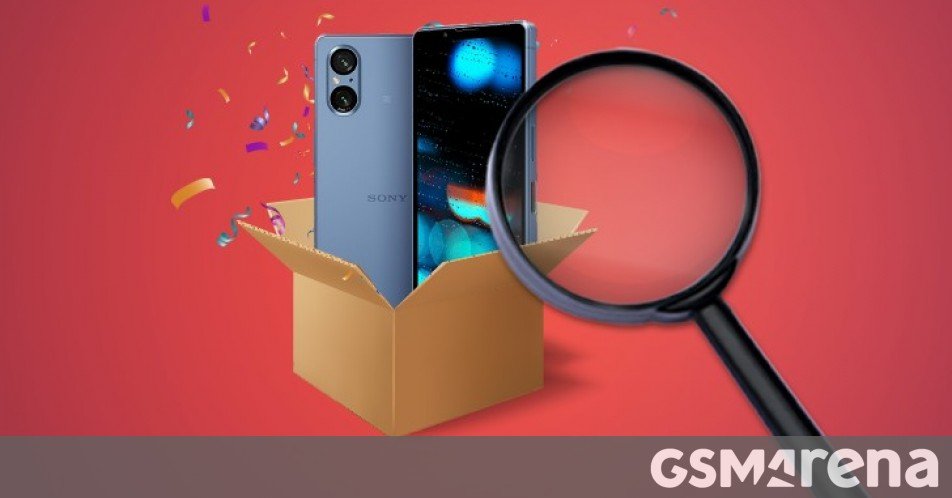Amazon has never been too patient with its holiday discounts, which is why Black Friday deals are already underway. We picked out some of the best phones from this year (and some from the year before).
The Asus Zenfone 10 is a rare beast – a small, premium Android. It’s not tiny by any means, but it has a Snapdragon 8 Gen 2 chipset and plenty of RAM (you can have 16GB if you want) plus a 5.92” 144Hz AMOLED display with HDR10+. Small though it may be, it has a 3.5mm headphone jack, which is another thing you don’t see often these days.
The Google Pixel 7a is also on the small side and it is much easier on the wallet. You do lose out the flagship performance, though, the Tensor G2 is behind the curve and the 6.1” 90Hz AMOLED is better than what came before, but 120Hz is pretty common on mid-rangers these days.
The Sony Xperia 10 V is another petite Android, this one with a 6.1” 21:9 display (only 60Hz refresh rate, though). It has a 3.5mm headphone jack and it even has a microSD slot. Plus, there is an 8MP portrait camera – the lens is only 2x, but the two phones above have only in-sensor zoom to rely on. The 10 V received Android 14 earlier this week.
Sony released a petite flagship this year too, the Sony Xperia 5 V. However, at the same price, the Zenfone 10 offers 16/512GB memory, not 8/128GB. At least this one has a microSD slot (unlike the Asus). Unfortunately, Sony removed the tele camera from this generation. This phone is powered by the Snapdragon 8 Gen 2, which runs laps around the 695 chip inside the 10 V.
If you don’t mind the size, the Sony Xperia 5 IV from last year has a 12MP tele camera with continuous zoom between 85mm and 125mm (3.5-5x). You’ll have to make do with the older Snapdragon 8 Gen 1, however. Like the 5 V, this one has a 120Hz display, however, the 1-series offers higher resolution – 4K in the vertical dimension, vs. 1080p.
And since we’re talking about old flagships, the OnePlus 11 will be replaced soon, but for less than £500 you can get a 6.7” 120Hz LTPO display, a Snapdragon 8 Gen 2 chipset, a 50MP main, 32MP 2x portrait and 48MP 115° ultra wide cameras, plus a 5,000mAh battery with 100W charging (wired only).
It’s no flagship, but it is a great price – the Nothing Phone (1) combines a Snapdragon 778G+ with a 6.55” 120Hz OLED display. It has a dual 50MP camera (main + 114° ultra wide) and 15W wireless charging, in addition to 33W wired charging for the 4,500mAh battery.
While you’re at it, you can grab the Nothing Ear (2) to compete the transparent look. These are not the best TWS buds (check out our review for details), but they are stylish.
The Xiaomi Redmi Note 12 Pro (5G) and the Samsung Galaxy A34 are at the same price. Both use the Dimensity 1080 chipset and have similar displays – 6.67” and 6.6” 120Hz FHD+ AMOLEDs, respectively. The Redmi stands out with Dolby Vision support, the Samsung has the better dust and water resistance (IP67 vs. IP53), plus longer software support (4 OS updates, 5 years of security patches).
The Redmi has a slight advantage in terms of camera – 50MP 1/1.56” main vs. 48MP 1/2.0”, the 8MP ultra wides are basically the same. Both have stereo speakers, the Redmi has a 3.5mm headphone jack too. Both have 5,000mAh batteries, the Redmi races ahead with 67W charging vs. 25W on the Samsung (55 minutes to full vs. 1 hour 24 minutes).
We’ll wrap up with a pair of smartwatches – the Samsung Galaxy Watch6 and Watch6 Classic. The latter has a rotating bezel, which also means it is 3mm wider for the same display size. Other than the bezel, they have practically identical hardware, even the batteries have the same capacities.
We may get a commission from qualifying sales.













